History of the Department
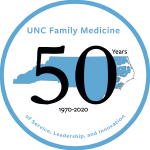 Fifty Years of UNC Family Medicine
Fifty Years of UNC Family Medicine
This year, UNC Family Medicine celebrates its 50th year. The department, established in 1970 by the North Carolina legislature, has been a leader in transforming care and promoting the health of the people of North Carolina and the nation through leadership and innovation in clinical practice, medical education, research, and community service.
Highlights from the Department’s Milestones:

1970
The UNC Department of Family Medicine was established with Dr. Robert Smith as its inaugural chair. The Department was established thanks to legislation passed by the North Carolina General Assembly that mandated and funded the establishment. This legislation was the result of years of hard work on behalf of family medicine advocates John Henley, James Jones, Amos Johnson, Robert Huntley, and others.
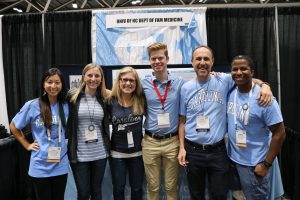
1973
Family Medicine Residency was established at UNC-Chapel Hill. Originally the program had approximately six residents per class. It has now grown to 14.
1976
Chair Edward Shahady helped to create the Affiliated Coordinated Consortium (ACC), precursor to the Statewide Department of Family Medicine. The statewide program enhanced education, networking and sharing of each program’s special capabilities for the benefit of all.
1979
The Family Medicine Faculty Development Fellowship Program was established by the UNC department. The Fellowship has graduated over 500 physicians who have gone on to become leaders in the field of Family Medicine. It is the only national program of its kind.

1987
The affiliated residency programs in Chapel Hill, Greensboro, Asheville, and Charlotte become the statewide UNC Department of Family Medicine. Wilmington and Concord would add residency programs in the 1990s.
1980-90s
A team of faculty from UNC and several affiliated residency programs in the state designed a clerkship and a system of educational sites, practicing family physicians’ offices and rural clinics orbiting around and supported by the faculty and material resources of the affiliated residency programs.
1990s
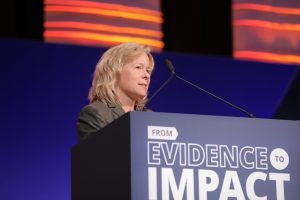
Based off the earlier work by Dr. Peter Curtis and others in establishing a strong research foundation in the department, concerted efforts were made to recruit young faculty members with strong interests in and capabilities for research in clinical practice, research and administration in family medicine. The resulting research and scholarship has dramatically increased opportunities for family physicians in various settings to share knowledge and insights that directly affect the health and welfare of patients, families and communities.
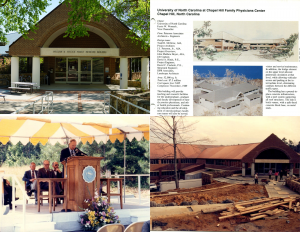 1990
1990
The Aycock Family Medicine Building was dedicated as the permanent home of the UNC Department of Family Medicine. The building allowed for enhanced training, research and innovation and expanded access for patients.
Note: Charles Brantley Aycock should not be confused with his cousin William Brantley Aycock, UNC-Chapel Hill Chancellor (1957-1964) and namesake of Aycock Family Medicine Center.
2006
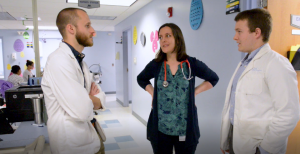
The statewide UNC Department of Family Medicine was recognized by US News & World Report as one of the top five family medicine programs in America, a recognition which has been repeated annually since 2006.
2012
In cooperation with Piedmont Health Services, the Rural Residency Track was created to help address the state’s maldistribution of physicians. Residents trained in rural and underserved practices are up to 3 times more likely to practice in similar settings.
2016
The Family Medicine Center underwent a process and physical space remodeling based on Lean methodology. The space plus new methods makes the FMC a living center for innovation in teaching and patient-centered care.

Warren Newton, MD, MPH; President & CEO, ABFM – Residency Class of 1987
Cristy Page, MD, MPH; Executive Dean, UNC School of Medicine – Residency Class of 2005, Fellowship Class of 2007
2020
Fifty years of UNC Family Medicine has seen faculty and alumni leading on a national and statewide level. We are currently leading throughout North Carolina and the nation, with leaders at UNC Health and School of Medicine, North Carolina Institute of Medicine, American Academy of Family Physicians, American Board of Family Medicine, U.S. Preventive Services Task Force, and have many alumni throughout the nation who are currently chairs of their departments.
